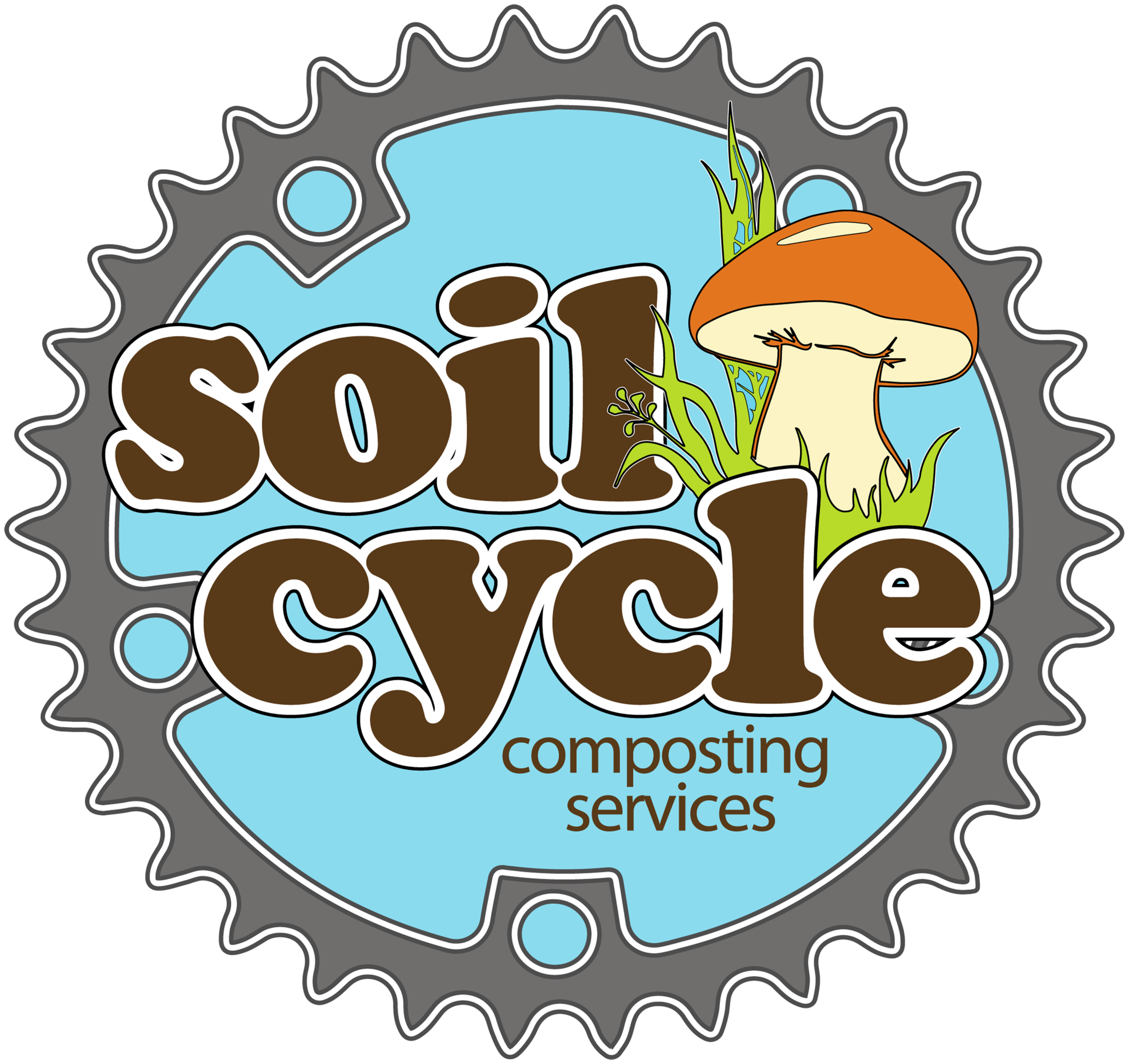Why Does Environmental Change Feel So Difficult?
Cailtyn Lewis holding a “climate justice” pumpkin during a Soil Cycle Pumpkin ReHarvest event.
By Caitlyn Lewis
Just as money exchanges hands everyday, we too exchange our thoughts, words, and actions for what we value most. Values drive our collective and individual actions. Historically, our values as a nation include time, security, power, comfort and convenience. Where we are now is a reflection of the values of the past. But it is important to mention that these values weren’t and aren’t always expressed equally; it is often the values of the wealthy and powerful that dominate. Therefore, it is no surprise that single-use plastics and other environmentally hazardous consumables thrive, since these types of products reduce costs, save time, and make our lives more convenient. As globalization increased, shipping products became possible and highly profitable, allowing us the privilege to experience the goods of the world. In turn, landfills and incinerators became the most convenient way to handle all the excess waste. Big companies continue to promote gas powered vehicles and carbon energy to bolster their values of power and money.
Does all this sound familiar? It should, since we have been living in that world and there is no denying that it affects our actions too. I am no energy mogul, but I see these interests expressed in my own actions as I buy imported foods and expect short shipping times from the things I order online. We participate in activities that directly impact our planet everyday - often in small, but measurable ways. I mention this, not to shame, but to recognize that we too are part of this value-driven society.
Making meaningful and lasting changes is difficult for a number of reasons. I believe this is so difficult because our goals aren’t yet aligned with our values that may still be stuck in the past. To move forward with our environmental goals, I have found that self-reflection can allow us to exchange values more easily. If we can identify what values are behind our thoughts, actions, and words, we can become more aligned with our purpose to help the planet. Self-reflection and action from within an environmental crisis requires great humility, bravery, and sacrifice. *kudos to those still reading*
While recently leading a high school class during a service learning trip to Soil Cycle, a handful of students refused to help feed our worm bins, explaining the process was just too gross. Plugging their noses and making gagging noises, I became upset that they weren’t willing to do something simple for the benefit of the Earth. Reflecting on this situation, I was reminded about the sacrifices we all chose to make for what we care about most. The best part is that sacrifices don’t have to look the same for everyone. Those students reminded me that not all of us have to sling rotten food around to help the Earth… just some.
Sacrifice can look like financially supporting the people and organizations that are doing the work you do not or cannot do yourself. Sacrifice can be the extra time it takes to mend your clothes instead of donating them. Sacrifice can look like going without certain foods that only come in single-use plastic. The sacrifices we chose to make for the betterment of our planet can offer us more reward than we ever imagined losing in the process, but it can take time to identify where your values and actions best align.
Caitlyn Lewis bikepacking in Idaho
When I look at my own actions, I see my personal values reflected. When I began biking for transportation, it was not just for the environment's sake. Biking to school was also a means to get free campus parking. My values of frugality, time-saving and sustainable transportation aligned, making sacrificing the comfort of driving an easy and long-lasting choice. The actions that provide both personal and planetary benefits are the easiest to implement, meaning we can adopt the change longer or permanently. If we can see that our personal choice can also benefit the planet in a tangled way, it is much easier for us to act.
I believe the world is filled with hopeful people; people who want to change but are stuck in the value frameworks of the past. In my experience, the changes we are told to make, don’t stick. It is much more powerful when we can exchange and align our values with the planet. The real changes come from our personal choices and sacrifices. We need to stop perceiving change as a threat and sacrifice as a loss. My hope is that environmental change can become easier as we see it as an opportunity and see sacrifice as a gain for ourselves and the planet.
—
Caitlyn Lewis backpacking in Montana
Caitlyn Lewis is the director of Soil Cycle, a Missoula bicycle-powered composting nonprofit. Her passion for composting was born out of environmental concerns regarding wasted food and has grown into a love for all things soil! Caitlyn wants to make sustainable living more accessible to those who wish to lessen their personal environmental impacts.
Soil Cycle's mission is to promote the natural food cycle by providing environmentally sustainable compost services and education. Soil Cycle strives to simplify sustainable living and encourage citizens and businesses to reduce food waste. By diverting food from the local landfill, we hope to create a more sustainable community. Once processed, cured compost will be returned to subscribers providing them a tool to grow their own food, connect with the land and ultimately complete the cycle!



